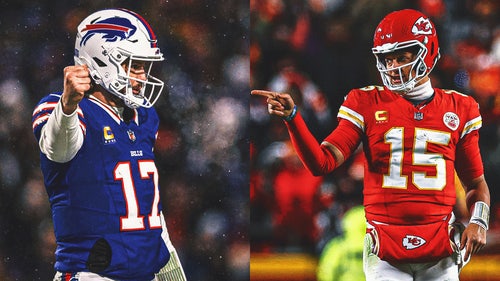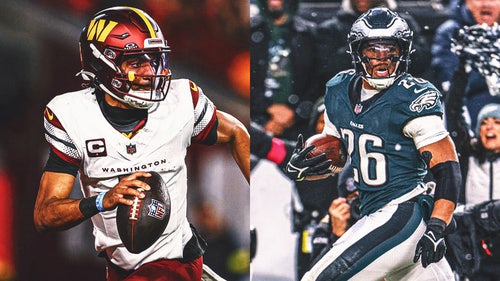
Why NFL linebacker Quentin Groves' death deserved bigger headlines

An NFL agent reflects on the life of his friend and client Quentin Groves, who died of a heart attack on Oct. 15 at the age of 32.
One of my favorite memories of Quentin Groves came in the summer of 2014. He was at the Texans’ training camp, and they had joint practices with the Broncos, so I flew out to Denver to see him. For an hour we were hanging out like we’d done so many times before. “Wait, I want to show you something,” he said, pulling out a photo.
It was Quentin and Jadeveon Clowney, then a Houston rookie. Quentin and Clowney played the same position, both came from small Southern towns and carried outsized expectations. They even looked kind of similar.
In the photo, Jadeveon has a sly grin. “Look at this face—you see this?” Quentin said. “I know everything he’s thinking in that look. I used to make that look.”
Quentin, known as Q to teammates and friends, had a nice NFL career; he played eight years and made millions. He didn’t develop into a star but did develop into a great special teams player and third down pass-rush specialist. He was also someone a team could rely on. At the time, Quentin said he saw Clowney making many of the same mistakes he had made. “I hope I make the team here,” Quentin told me. “Because I can help him. I can be a mentor.”
I knew Quentin better than most people did, and it was the first time I ever heard him talk with such perspective. The expectation of who Quentin was projected to be and who he became was different. But in that camp in 2014, it was like he finally got it, and he found a new purpose through football. As an agent who spent years trying to get a player to see the world a certain way, I saw this as a breakthrough moment. Ever since I heard the tragic news of Quentin’s passing, I’ve thought back often to this moment together.
More than 2,000 players suit up in the NFL each year. You know the quarterbacks, and the Clowneys, and the stars of your favorite team. But there are hundreds of guys like Quentin, the unsung heroes of the NFL who get little recognition. You might have remembered Quentin from Auburn. His senior class won more games than any other in school history. He was twice first-team All-SEC, and he tied the school’s record with 26 sacks. The NFL has two scouting services, Blesto and National, and going into his senior season Quentin was either No. 1 or No. 3 overall senior on both reports.
But guys like Quentin don’t always matriculate. He fell to the second round, to the Jaguars. Two years later he was traded, and overall he cycled through seven teams in eight years. I signed him early in my career, when I was 30, and we grew together. I learned from him, and I am a better agent today for having worked with him. He even fired me at one point. He was the guy you couldn’t help but love, no matter how many times I was telling him no. (“No Quentin, you shouldn’t buy that car.” “No Quentin, if someone calls and asks for $100, you can’t give them $100.”)
Quentin’s funeral was Oct. 29 in his hometown of Greenville, Miss. He died at age 32 of a sudden heart attack, leaving behind his college sweetheart, Treska, his son, Que’Mani Kassan Shiloh and daughter, Que’Jaah. Many will remember Quentin as a football player. I will remember Quentin for how he evolved as a man. It was never easy for Quentin, which is why I think it’s important to consider the mistakes he made early in his career and how they shaped him. Quentin fell into the trap many young players do, but he evolved as a player and a person during his eight-year career. I’m proud to have witnessed the growth he exhibited over that time.
Had Quentin declared for the draft after his junior year at Auburn, I’m convinced he would have been a first-round pick. But the hype surrounding his senior season, the focus on him by opposing teams and the overall pressure got to him, I think. He wasn’t quite as productive. His head was all over the place. That was what we heard from a lot of NFL teams during the draft process: They weren’t sure if he could focus all of his energy on football. He did well at the combine position drills and ran a 4.43 at his spring pro day, making him one of the fastest defensive ends ever. But he slipped into the second round, likely due to a combination of the surgery and concerns about his concentration.
Before the combine, we sat down with Quentin and his wife, Treska, to discuss the pre-draft interview process with former NFL general manager Ken Herock. We hired Ken to help him prepare for the interviews in Indianapolis. Ken told me he was going to suggest Quentin cut his signature long dreads. My response was “good luck with that.” In the meeting, when Ken suggested this, Quentin responded immediately, asking, “Does a lion shave its mane?”
We spent draft day at Quentin’s mother’s house in Greenville. In 2008, the draft held the first two rounds on Saturday in the afternoon and evening and the final five rounds on Sunday. The Jaguars traded up six spots to select Quentin at No. 52 in the second round. Jacksonville hoped he and their first-round pick, Derrick Harvey, would shore up its pass-rushing woes. It was a long day and night; everyone was exhausted and jittery. Nobody wanted to have to come back the next day for the third round. An hour after he got the call, Quentin looked at me and said, “I know everyone here is a little disappointed. I should have gone higher.”
His voice then morphed into his more typical upbeat tone. “But think about it,” he said. “I was the 52nd pick in the NFL draft today. Look at where I come from. Do you know how amazing that is?”
There are so many stories about Quentin that I want to share and that others have recently shared with me. He was always good-natured, always smiling. But man, he was competitive. In 2008 he trained with Jerod Mayo and Brandon Albert under Tony Villani of XPE Sports. Jerod and him would argue every day who was faster. He would tell Brandon how many sacks he would get on him during his career. He was constantly competing.
He enjoyed speaking to younger players and being a mentor. Whether that meant talking to them about pass-rush moves while working out or talking to them about surviving in the NFL, he was always there to talk and guide.
During his rookie year in Jacksonville, we went to Waffle House after a Monday Night game. It was about 2 a.m., and we left with boxes of leftovers. As we walked out, Quentin made a bee-line to a homeless man sitting on the curb and handed him the food. That was the guy he was. Always giving.
Quentin was a loving father and always tried to inspire his teammates with inspirational quotes. If a fan wanted a photo, there was no chance Quentin would say no. If a teammate asked for him to stop by his youth camp, Quentin would be there. But he was a 21-year-old making millions, and he enjoyed that lifestyle. Someone approached him about starting a rap label, and the next day Quentin was figuring out how he could become business partners, without truly considering what that involved.
Quentin would call me often with random requests. “I want to go to a concert in New York on Friday.” “I want to take Treska to the Bahamas this weekend”. We had an internal office rule regarding Quentin. Never book anything for him that was non-refundable because he would he often change his mind.
Still, I was shocked when I was boarding an airplane around draft time 2010 and got a call from Gene Smith, the GM of the Jaguars. Quentin was being traded to the Raiders.
When I talked to Quentin in his typical upbeat manner, he responded: “That’s OK—the Jaguars were not the best fit for me either, so at least now I have a chance to prove myself for a new team that wants me.”
Quentin, too, embraced a new role. He didn’t have to be the do-everything guy he was hyped up to be since Auburn. Instead, he could shine on special teams—remember, he was fast as well as strong—and come in on third-down pass rush situations, and still contribute to the team that way.
Al Davis died in 2011. And my conversations with the Raiders’ front office turned from “we need to bring this guy back” to “we are moving in a different direction.”
In 2012 free agency, Quentin went past the NFL draft in May and remained unemployed. (At this time, I was unemployed as his agent, too, when he signed with another.) We stayed in touch, though, because we had always had a bond. He rehired me in late May that year, and the next day I had him on a plane to Arizona, where he signed a one-year deal. I often thank Jason Licht (now the Bucs GM) for taking a chance on Quentin. He repaid it by getting four sacks in seven games for the Cardinals.
He was in Bills training camp in 2015, but didn’t make the team.
Quentin was in Trinidad when he died. The news reports say he was there because that’s where Treska was from, but there was another reason Quentin loved going down there. He was building youth football programs in that country. I like to think that one day I’ll meet with a player originally from Trinidad, and during the recruiting meeting he’ll tell me how Quentin influenced his life and pointed him toward the NFL. His success would be all thanks to Quentin, and I know Quentin would be proud.
Sean Kiernan, an agent since 2001, works with Select Sports Group. His clients include Jerod Mayo, Jay Ajayi, Datone Jones and Lamarr Houston.












